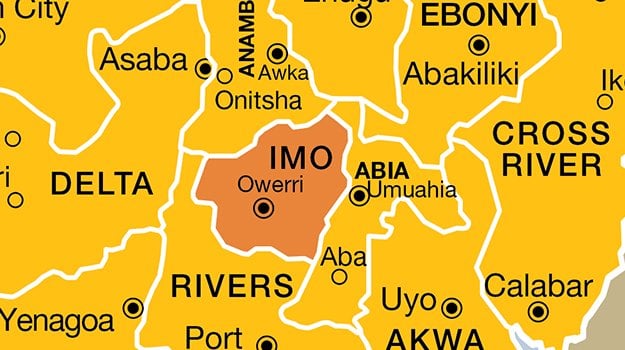War is a black egg of carnage and despair, and when it breaks out; its shell of mayhem crushes stability, and its yolk of trouble melts futures. This sorry state has been the reality of Ukrainians for the last seven days as the country suffered an invasion from President Vladimir Putin’s Russia. The ongoing shelling and gun battles in important Ukrainian cities have claimed the lives of over 2,000 civilians and military personnel. The war has also impacted the lives of over 12,000 Nigerians living in the country.
As some of the country’s citizens fled into neighbouring lands to escape the chaos, video clips surfaced on social media depicting how Nigerians, alongside other Africans, were turned back at the border by gun-wielding guards. Many described the viral images as racism rearing its ugly head. Others played the devil’s advocate and blamed the Nigerians for leaving their father land for such a place.
Below are the top reasons why Ukraine is a popular destination among Nigerians emigrating.
CHEAP BUT QUALITY EDUCATION
Advertisement
Nigerians, alongside citizens of other African and Asian countries, emigrate to Ukraine in droves for educational purposes. According to data from UNESCO, there are 3,302 Nigerian students currently admitted into academic programmes in the country. For a country where only a tiny fraction understands the English language, ambitious Nigerian students are not dissuaded as they enroll themselves in programmes that are offered in English.
For Nigerian students trying to evade the incessant strike of the Academic Staff Union of Universities (ASUU) and not drill holes in their parents’ pockets with the exorbitant fee of the country’s private tertiary institutions, Ukraine presents a cheaper option. According to ToStudyInUkraine, with $4000-$5000, one can get a medical degree from a Ukrainian university, which is low compared to tuition fees in countries like Canada, the UK, and the US where the same degree could cost as much as $20,000 to $90,000.
In addition, medical degrees earned in Ukraine, for instance, are recognised worldwide, including by the World Health Organisation (WHO), European Council and other global bodies.
Advertisement
Speaking with Ukrainer, Abekwuchi Chukwumati, a senior at the faculty of law at Ternopil National Economic University, said her mother picked Ukraine as an educational destination because “it’s easy to apply for a visa here”.
“The child of my mother’s friend studied here at Ternopil Medical University, so she recommended this school to my mum. And my mother thought, ‘Okay. It’s a good university, and it’s easy to apply for a visa here.’ So we decided to come here,” she said.
THE LURE OF GREEN PASTURE
According to TradingEconomics, the unemployment rate in Ukraine as of September 2021 was as low as 9.2% compared to 33.3% in Nigeria. There are obviously better chances of getting engaged with a job in Ukraine than staying in a country with a youth unemployment rate of 53.4%.
Advertisement
Remuneration is also a vital factor in the decision of Nigerians emigrating to Ukraine. The country has a minimum wage of 6,000 Ukrainian hryvnia, which equals N83,000 — over 150% above the N30,000 minimum wage in Nigeria.
For Chigo, a Nigerian student who migrated to Ukraine to study a few months ago, the standard of living in Ukraine dwarfs that of the Nigeria he left behind.
“There is no comparison at all. The cost of living here is far lower than in Nigeria,” he told TheCable.
An Instagram user, @cowriesking, who has been at the forefront of providing aid to Nigerians fleeing the war, blamed a lack of basic amenities in Nigeria as a major factor why he and others moved to Ukraine.
Advertisement
“We all know the situation of Nigeria. After all these years, the country can’t still provide constant electricity,” he told TheCable.
However, emigration comes with low points. Uprooting oneself from the warmth and familiarity of one’s country into the unfamiliarity of a foreign land comes with challenges.
Advertisement
Chigo described how he found it hard to acclimatise to the biting cold of the Ukrainian winter when he first arrived.
“The cold was a challenge at first. You have to go places in multiple clothes. It takes a while to adapt to the cold. We go to wherever we are going as fast as possible and quickly get heated up upon reaching our destination,” he said.
Advertisement
For Chukwumati, it was beyond the cold, but the country’s “quiet” that she found disturbing at first.
“At first, it was too cold for me in Ukraine. So cold. And too quiet, empty outside. A little bit too quiet for my liking.”
Advertisement
Although Chigo had to communicate with the Google Translate app whenever he was on a grocery run, he said “language is not really a barrier”.
But for Jeffrey, a Nigerian musician in Ternopil, the language barrier made socialisation difficult for him when he first moved to Ukraine. His situation only got better after picking up the local language in bits.
“I gradually learn Ukrainian by listening to the conversations of Ukrainians. But even when I know what to say (in Ukrainian), I remain silent,” he said.
The terrible incident that Africans suffered at the Ukrainian border while trying to escape has evoked conversations around racism in the country.
Nze, a 25-year-old Nigerian studying at the state university of telecommunication in Kyiv, claimed he found it tough getting accommodation because Africans are often blacklisted as “smelly tenants” by Ukrainian landlords.
“I found getting accommodation very challenging because most Ukrainians don’t rent their apartments to Africans. They say we smell and leave the place smelling,” he told TheCable.
Corroborating Nze’s claim of racism, Chukwumati said she and some of her Nigerian friends have been victims of Ukrainians’ hostility and racism in public transport. She recounted one harrowing incident.
“Once I was riding a bus, and a woman was trying to push me out of my seat. And nobody said anything. They just looked as if it were normal. I didn’t know what to do,” she said.
Add a comment






